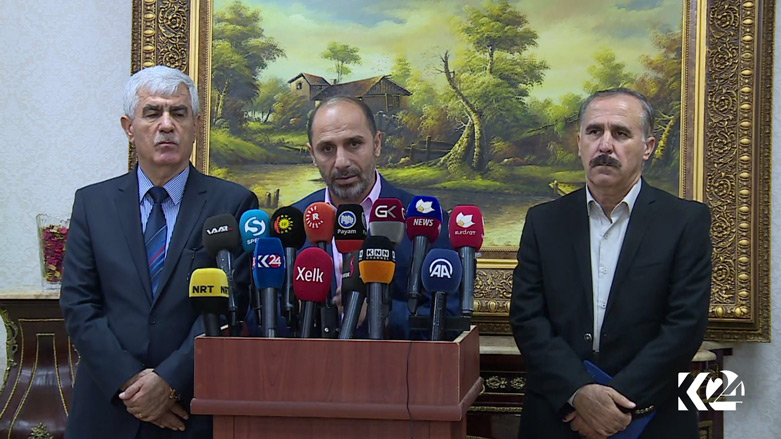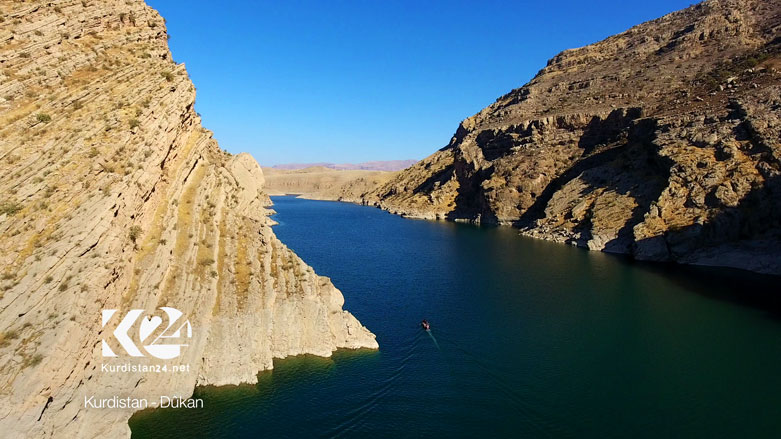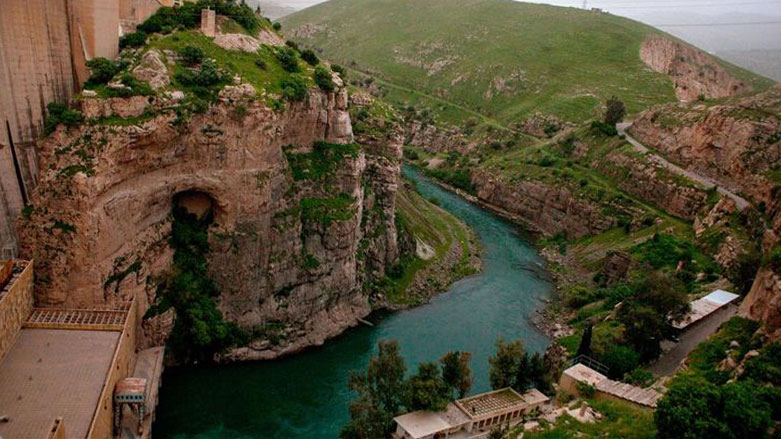Kurdistan's dams, agricultural growth to make Iran, Turkey threats ineffective: Minister

ERBIL, Kurdistan Region (Kurdistan 24) – People in the Kurdistan Region have no reason to worry about possible border closures as the Region is self-sufficient in producing most of the goods it consumes, said a Kurdish official on Monday.
The Kurdistan Regional Government (KRG) has scheduled a referendum on independence for Sep. 25, 2017, to decide whether to secede from the rest of Iraq, a move which has raised some concerns among the people of the Kurdistan Region, notably regarding how neighboring countries might react.
“Once the dam projects in Kurdistan, currently underway, are completed, Iran and Turkey would have very few cards to play. They would not be able to pressure us by threatening our access to water resources,” said Abdulstar Majid, the Kurdistan Region's Minister of Agriculture and Water Resources, during a press conference held in Erbil on Monday.
Majid projected it would take roughly a year to finish implementing the ministry's plans and complete its projects. “The referendum, or at least the actual separation of Iraq following the vote, should be deferred for a year and allow us to complete our projects.”
The Kurdish Minister warned that while the Kurdistan Region is heading toward the referendum, some individuals are trying to spread fear and uncertainty among the people of Kurdistan regarding food and water security in the Region despite “having no expertise or information” on the matter.
Majid pointed to the growth in the agricultural sector in Kurdistan, which has substantially expanded since 2014.
He also provided statistics and noted the KRG has 17 dams, and has enough water resources, over ten billions cubic meters, in the Kurdistan Region to meet the needs of the people. He, nevertheless, mentioned the water "had not been distributed in a stable and consistent manner.”
Recently, Tehran dramatically reduced the flow of rivers stemming from Iran to the Kurdistan Region, which led to some border towns facing a sudden shortage of water.
The decrease in water flow was linked to an Iranian dam near the border of the Kurdistan Region. The issue was resolved following negotiations between the KRG and the federal government of Iraq with Iran.
Editing by G.H. Renaud


